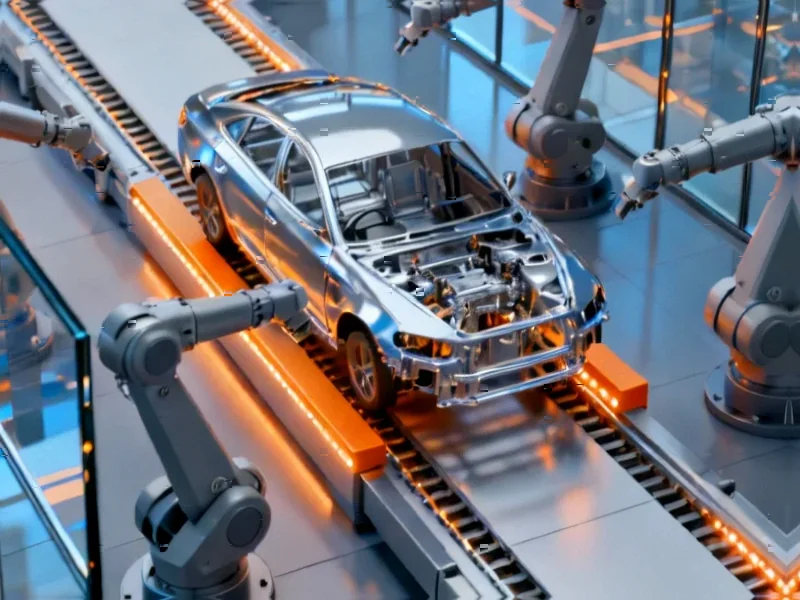According to Manufacturing.net, German automotive supplier Mahle is undertaking a $6.8 million expansion at its Lockport, New York facility that will relocate a Research & Testing Center from Michigan to Niagara County. The project at 350 Upper Mountain Road is expected to create 11 new jobs while retaining 226 existing positions, with Empire State Development providing up to $250,000 in Excelsior Jobs Program tax credits as incentive. Stefan Land, Vice President of Thermal and Fluid Systems at Mahle North America, emphasized that state and local support “plays a vital role in enabling our growth and strengthening our long-term commitment to the region.” This strategic move reflects broader industry trends worth examining.
The Growing Thermal Management Imperative
The relocation of Mahle’s specialized Research & Testing Center specifically for thermal management products underscores a critical industry shift. As vehicles become increasingly electrified, thermal management has evolved from a comfort feature to a fundamental performance and safety requirement. Electric vehicle batteries, power electronics, and charging systems all require sophisticated thermal management to maintain optimal operating temperatures, prevent thermal runaway, and ensure longevity. Mahle’s decision to consolidate these capabilities in New York suggests the company is positioning itself as a leader in this high-growth segment, particularly as thermal management becomes increasingly central to vehicle performance across both traditional and electric platforms.
Northeast Manufacturing Renaissance
Mahle’s expansion in Niagara County represents part of a broader trend of manufacturing returning to traditional industrial regions. While the automotive industry has historically concentrated in the Midwest, states like New York are aggressively competing for high-value manufacturing and R&D operations through targeted incentives. The $250,000 tax credit package, while modest in the context of a $6.8 million investment, signals New York’s strategic approach to rebuilding its manufacturing base with technology-intensive operations rather than traditional assembly work. This aligns with Governor Kathy Hochul’s broader economic development strategy focused on advanced manufacturing and research capabilities that complement the state’s existing strengths in technology and engineering talent.
Competitive Implications for Auto Suppliers
This expansion strengthens Mahle’s position in the increasingly competitive thermal management sector, where companies like BorgWarner, Valeo, and Denso are all making significant investments. The consolidation of R&D capabilities in a single location suggests Mahle is pursuing efficiency gains and knowledge concentration that could accelerate development cycles. For a company that supplies components for “one in every two vehicles globally,” maintaining technological leadership in critical systems like thermal management is essential to defending market share against both traditional competitors and new entrants from the electronics sector. The relatively small job creation number—just 11 new positions—indicates this is primarily about capability enhancement rather than capacity expansion, reflecting the capital-intensive, high-skill nature of advanced automotive R&D.
Supply Chain Resilience Considerations
The relocation from Michigan to New York also reflects ongoing industry efforts to diversify geographic risk following pandemic-era supply chain disruptions. While automotive manufacturing remains concentrated in the Great Lakes region, spreading critical R&D and testing capabilities across different locations provides operational resilience. For Mahle, maintaining multiple North American research centers ensures that regional disruptions don’t completely halt development activities. This strategic dispersion becomes particularly important as the industry faces increasing pressure to accelerate innovation cycles while managing geopolitical and operational risks across its global footprint.
The High-Skill Workforce Challenge
The nature of this expansion—focusing on research and testing rather than mass production—highlights the automotive industry’s evolving workforce needs. With 226 retained positions described as engaged in “automotive-related research and development,” Mahle’s Lockport facility appears to be transitioning toward a knowledge-intensive operation. This creates both opportunity and challenge for the Western New York region, which must develop or attract specialized engineering talent in thermal systems, fluid dynamics, and advanced materials. The success of such expansions increasingly depends on regional capacity to supply the highly skilled technicians, engineers, and researchers needed to operate state-of-the-art testing facilities.




